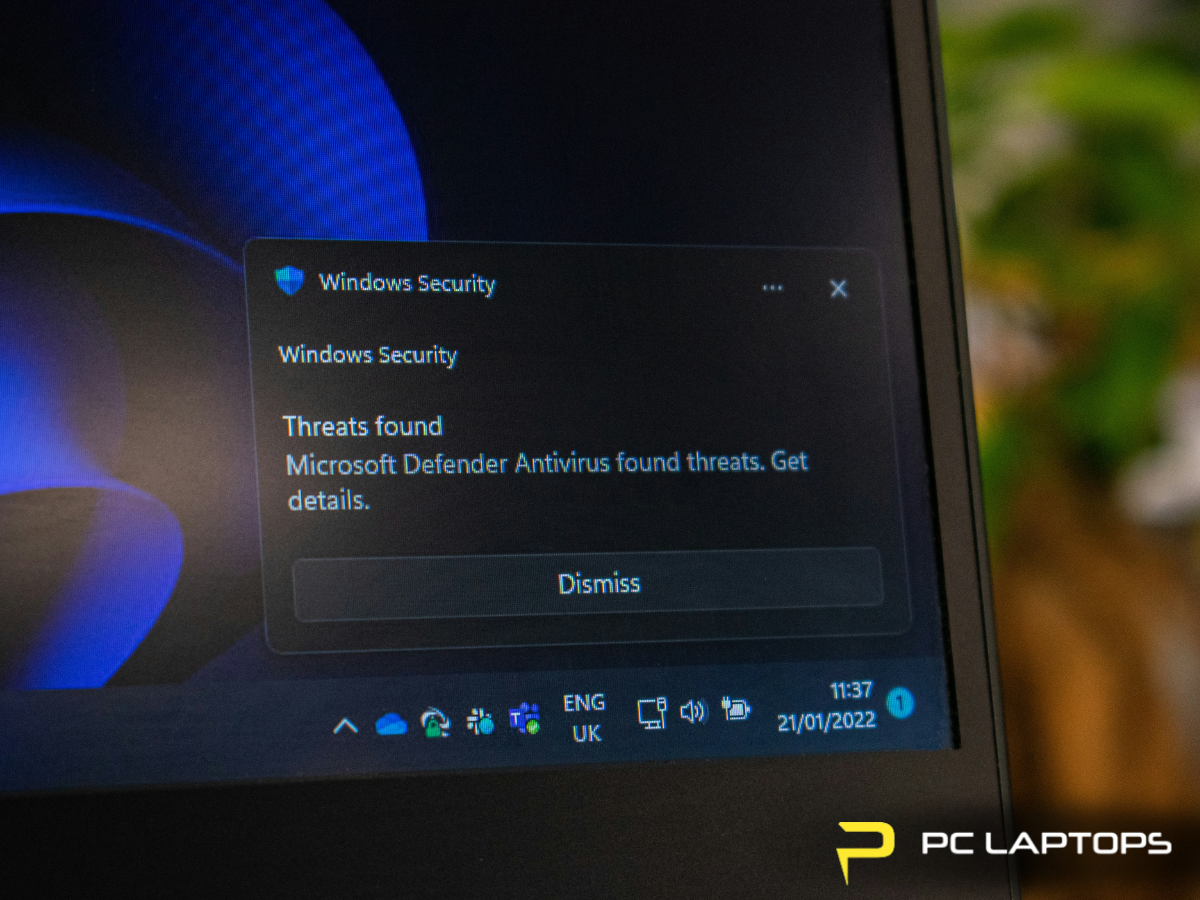What to Know About Built-In Virus Protection

What to Know About Built-In Virus Protection
Built-in antivirus software like Microsoft’s Windows Security (formerly Windows Defender) has come a long way and offers solid protection for everyday users. But while it provides essential PC security features, it’s not always enough on its own—especially if you store sensitive data or rely heavily on your computer. In this built-in antivirus review, we’ll break down how effective Windows Security is, where it may fall short, and why PC Laptops recommends combining built-in protection with good habits and professional Utah antivirus help when needed.
At A Glance: Is Built-in Antivirus Enough?
Windows Security (formerly Windows Defender) is Microsoft’s built-in antivirus that offers free real-time protection, frequent updates, and a firewall—making it strong enough for casual users. However, it has limits against advanced threats like ransomware, phishing, and zero-day attacks, where premium antivirus software or additional internet security tools perform better. To stay safe, keep Windows updated, back up important files, watch for warning signs like slow performance or suspicious pop-ups, and use professional help when issues arise. PC Laptops recommends a layered approach: rely on built-in virus protection for everyday security, but combine it with smart habits and expert support to safeguard sensitive data and keep your PC running securely. Need more? Keep reading
The Rise of Built-In Antivirus
Not too long ago, a new Windows laptop was basically a blank slate—you had to install third-party antivirus software immediately. Today, that’s changed. Windows comes with built-in antivirus software like Microsoft Defender Antivirus that scans your device automatically and provides real-time protection.
This shift means many users now enjoy automatic scans, software that can detect and prevent potential risks, and protection that helps safeguard your data and devices without additional cost. Windows firewall is also included to monitor incoming and outgoing network traffic, adding another line of defense against cyber attacks.
Windows Defender Guide: What It Does Well
Windows Security covers the basics most users need. Here are its strengths:
Real-Time Protection
Every file or program you open is checked instantly. This prevents unauthorized access from malicious code and helps detect threats in real-time before they spread.
Frequent Updates
Microsoft maintains a large database of known malware. Windows Security pulls from this database and uses heuristic-based and behavior-based detection to catch new types of malware.
Lightweight and Automatic
The software runs smoothly in the background, using software scans that don’t slow down your operating system. Automatic scans happen without you needing to schedule them.
Built-In Firewall
With settings to control how data moves, the firewall prevents unauthorized connections and helps protect against potential threats.
Together, these PC security features make Windows Security a reliable antivirus choice for casual use.
Is Windows Security Enough?
For some people, yes. For others, not always.
- Casual users browsing safe sites and using email messages carefully may not need antivirus beyond what’s already built-in.
- Students and professionals who save school projects or work documents should back up files regularly with services like PC Laptops data backup.
- Businesses or anyone exposed to cyber threats like ransomware or phishing scams should look at the best antivirus software available, since free antivirus protection can have limited features.
Think of Windows Security as a solid lock on your front door. It works, but modern antivirus tools can act like an alarm system—essential if you’re storing sensitive information.
Where Built-In Antivirus Falls Short
Even the best antivirus software has blind spots. Built-in antivirus protection sometimes cannot detect sophisticated types of threats. Here are key gaps:
- Ransomware defense is not as strong compared to specialized antivirus protection software.
- Phishing scams in email messages may contain malicious links that security software cannot detect immediately.
- Zero-day exploits and evolving cyber threats often bypass built-in features.
- Windows Security may have limited features compared to premium internet security suites that offer a password manager, anti-malware tools, and cross-device coverage.
How to Maximize PC Security Features
Even if you rely on Windows Security, there are ways to reduce potential risks:
- Keep Windows 10 and later versions updated to patch vulnerabilities.
- Use a password manager to safeguard personal information and prevent unauthorized access.
- Watch for files or programs downloaded from the internet that may contain malicious software.
- Enable PC Laptops repair services if your computer slows down, crashes, or shows signs of viruses and malware.
- Use online backup to protect important documents from ransomware attacks.
This layered approach helps prevent malware from damaging your system and keeps you ahead of evolving cyber threats.
Signs Your PC Might Already Be Infected
Knowing when to act fast can save your laptop and personal information. Watch for these warning signs:
- Slow performance, even when only a few programs are open
- Pop-ups or email messages that seem suspicious
- Files or programs suddenly not opening
- Security software turning off on its own
- Strange network activity, as your firewall may show unknown outgoing connections
If these occur, don’t wait. PC Laptops repair can neutralize malware, quarantine infected files, and restore your computer works properly.
Choosing the Right Antivirus
While built-in protection is good, you may need antivirus that goes further. Modern antivirus software offers features like malware detection, anti-malware scanning, and even behavior-based detection to catch threats in real-time. Look for security software that scans your device, detects new types of spyware and keyloggers, and helps prevent malware from spreading. The best antivirus software isn’t always the most expensive, but it should reliably detect and prevent potential threats.
If you’re unsure which reliable antivirus solution to use, check Microsoft support for official recommendations or visit PC Laptops for hands-on advice.
Built-In Antivirus Review: The Bottom Line
Windows Security is strong for common threats and works as an essential line of defense. However, it may not be enough for ransomware attacks, phishing scams, or malicious software designed to bypass built-in features. Pairing it with backups, good habits, and expert help will keep your data and devices safer.
Why PC Laptops Can Help
At PC Laptops, we know that every laptop faces unique potential threats. That’s why we offer support for virus protection, anti-malware, data backup, and general computer repair. We help protect Utah customers and their computers against viruses and malware, cyber attacks, and malicious files that may be downloaded from the internet.
Our team provides reliable antivirus advice and services to safeguard personal information and prevent malware damage. Visit our locations or contact us online to make sure your PC runs safely and securely.



